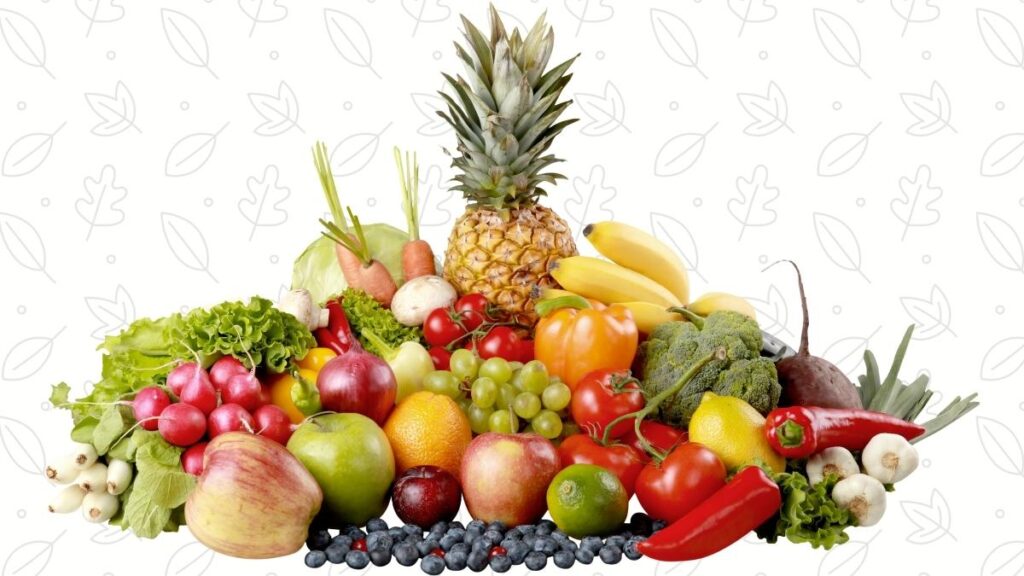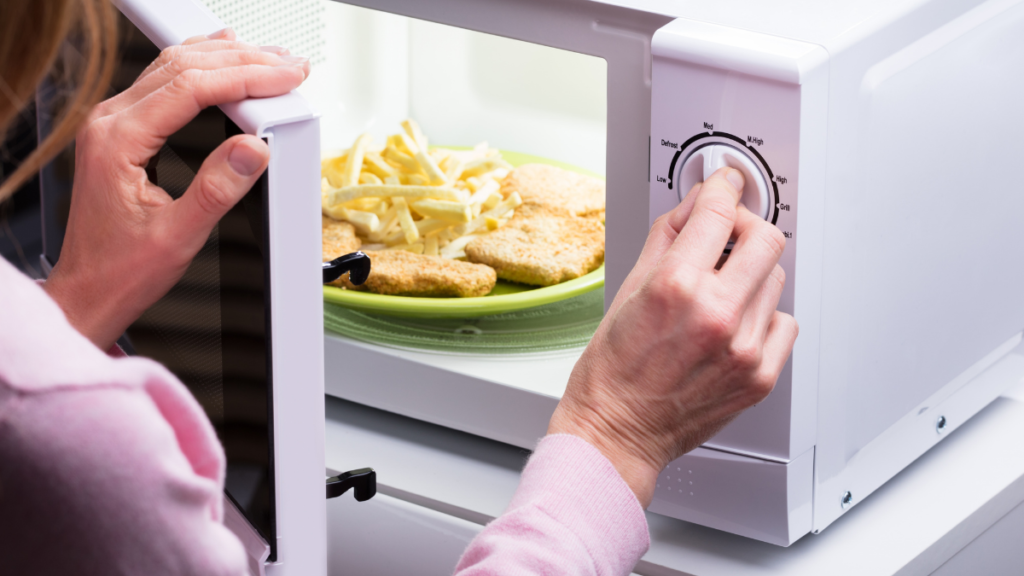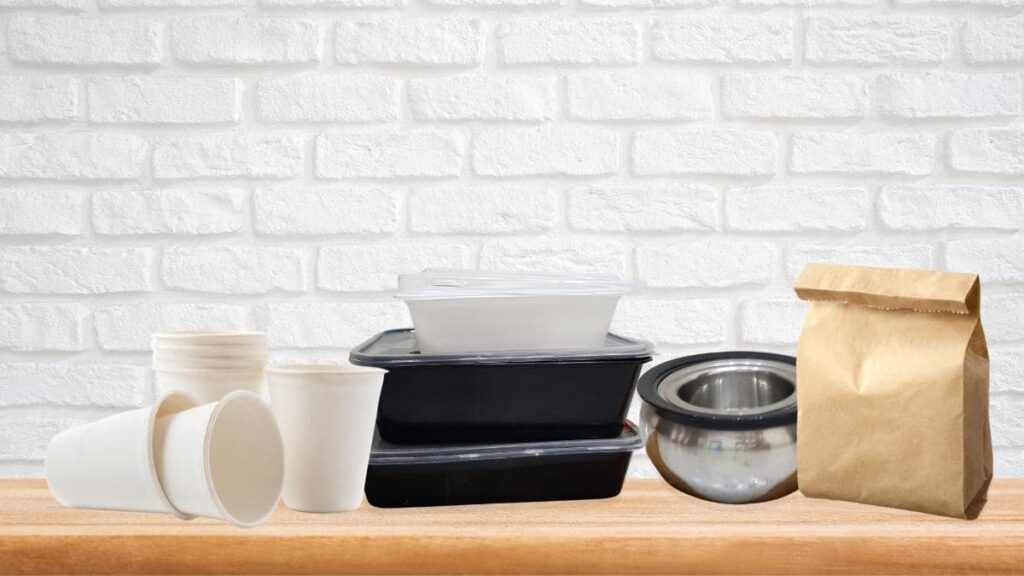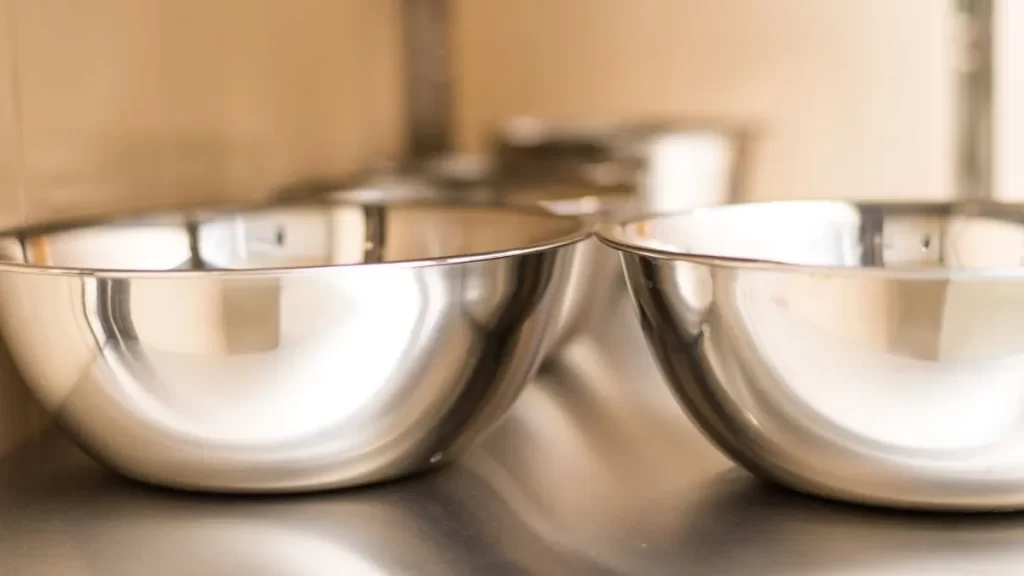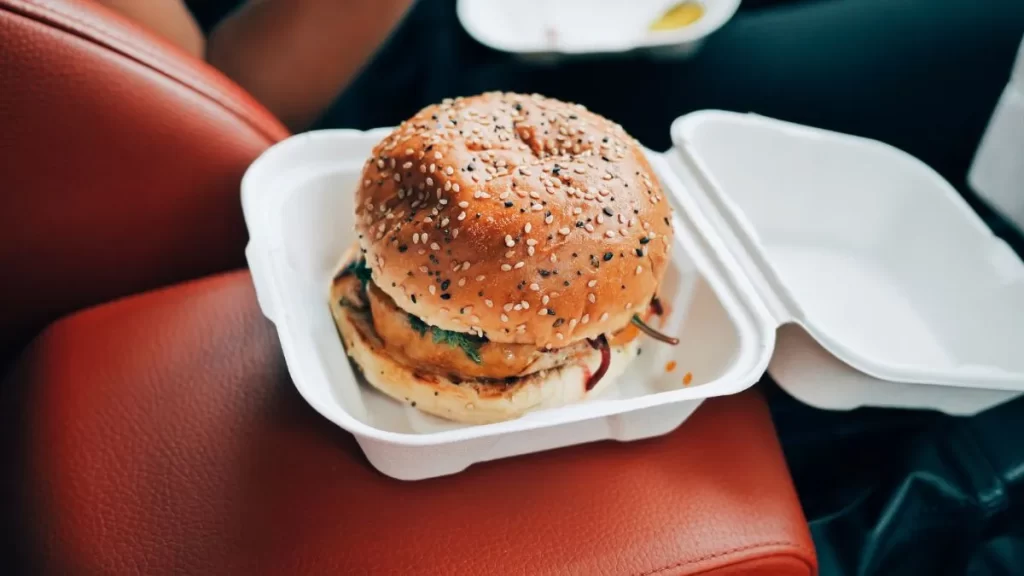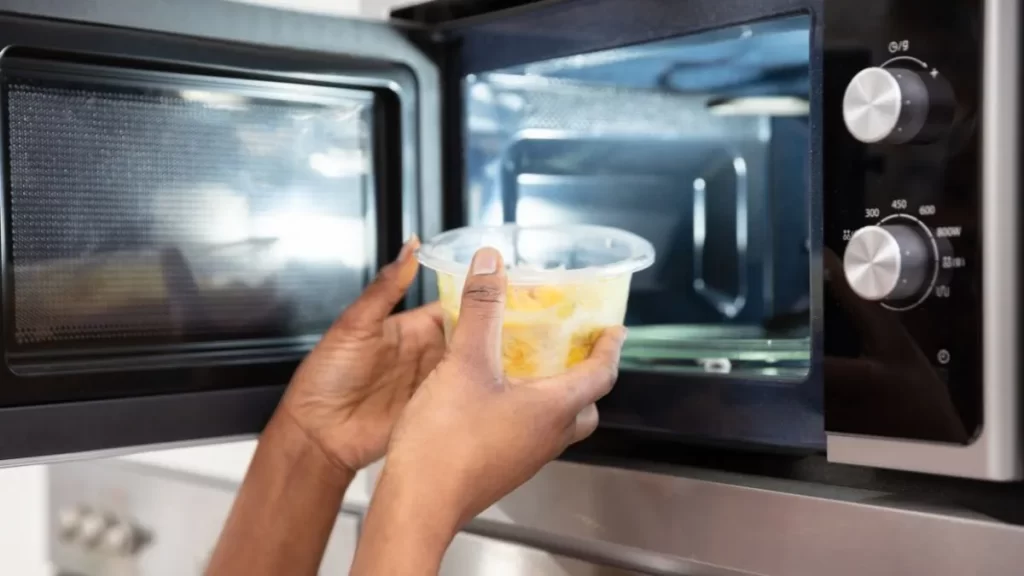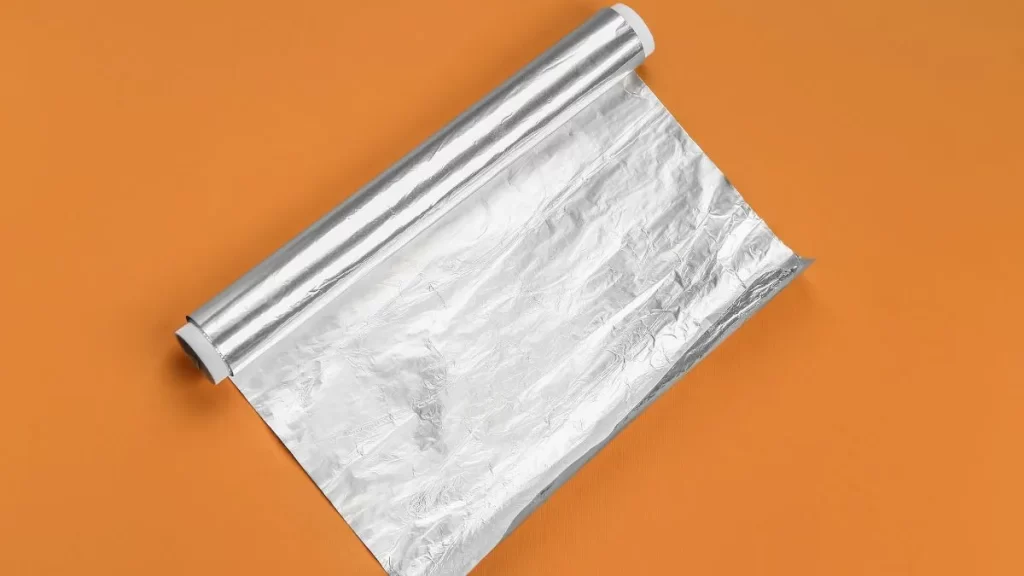While a microwave simplifies your daily kitchen life, there are some foods you should never microwave as they can cause arcing (spark) or explode.
A microwave is a must-have in every home, complementing the nutritional need of your fast-paced life and for instantly reheating, and thawing food.
But to ensure the appliance runs glitch-free and secures your health from food toxicity, you must know what to put and what not to put in a microwave.
The best way is to refer to your user manual to avoid damaging your microwave by microwaving anything.
If you can’t find your user manual, don’t worry. We have come up with a complete compilation of foods you must never put in a microwave.
Let’s get started!
Foods You Should Never Microwave
Turning ON Empty Microwave
Before we put forth foods you must not microwave, let’s understand the basics of running a microwave properly.
Besides microwaving certain food, if you often turn on an empty microwave to preheat it or to experiment and see what happens, you are exploiting the appliance to the fullest.
This is because when you microwave food, it gets cooked faster by absorbing the electromagnetic waves emitted by the magnetron.
But when you run an empty microwave, the electromagnetic waves have nothing to cook.
So the waves reflect on the cavity walls raising the temperature inside.
Such extreme heat damages the magnetron and other functionalities of the microwave and can cause a fire.
Whole Eggs
Microwaving whole eggs isn’t a sane idea, and you should never put hard-shelled eggs in a microwave.


When you turn on a microwave, it takes a few seconds to heat, creating extreme pressure inside the eggshell without letting the steam through the pores.
This extreme steam pressure escapes by bursting the eggshell and creating a mess inside your appliance.
Many fatal burn cases are reported every year for microwaving unsafe food items like boiling whole eggs, impairing many permanently.
However, you can treat yourself with scrambled eggs, poached eggs that taste far better when microwaved than on a conventional stovetop.
Grapes
Surprised to see the humble nutrition-packed grapes gracing the list of non-microwavable items?
We have strong scientific evidence as to why you should never microwave grapes.
Microwaving grapes has kept researchers hooked on showing up a firework which is nothing but artificially creating plasma through electrical conduction.
But we are sure you don’t want to spark a firework by allowing the microwaves to react with the ion-rich grape skin and ignite a plasma show at home.
So avoid microwaving grapes in any form, even out of experimental curiosity, to ensure your microwave’s lasting performance and stay safe from domestic fire hazards.
Hot Pepper
Hot pepper or even foods mixed with peppers are things you should never microwave.


Chilies have a compound called capsaicin which, when heated, is released as strong fume inside the microwave cavity.
Though this fume doesn’t have any damaging impact on the microwave, it can badly irritate your senses, eyes, and throat when you open the door.
So save yourself from such torturing burning effect by avoiding hot peppers in a microwave.
You must also avoid food smeared in hot pepper sauce or pepper in any form to secure yourself from inhaling toxic burning fumes and triggering a fire alarm.
Frozen Meat
Defrosting meat in a microwave is common, but we doubt its efficiency and hygiene compared to conventional defrosting.
When you defrost frozen meat in the microwave, there is a sudden rise in temperature, which leads to uneven thawing as extreme heat cooks and even dries out the exterior while leaving the inner layers cold for bacteria to thrive.
Besides this, if you put the packaged frozen meat in the microwave, the temperature inside will melt the packaging to leech chemicals into the meat.
So before thawing frozen meat, unpack it in a microwave-safe container and press defrost setting to thaw meat evenly and safely.
Processed Meat
When it comes to quick tasty treats, the efficiency of a microwave is unbeatable but are you frequently microwaving processed meat every other day? Stop doing it now. Here’s why.
According to researchers, when you microwave processed meat or any animal-based products, the cholesterol oxidizes and degrades, making these foods Cholesterol Oxidation Products or (COPs).
Consuming such COPs over time is a sure-shot invitation to artery blockages, disrupting the normal flow of oxygen-rich blood in vital organs and other body parts.
So, stop microwaving processed meat to live your heart out every day.
Sauce or Dip
While you use a microwave to quickly warm up food, trying to reheat a bowl of sauce or dip isn’t a good idea.
Sauce or dips get heated quickly when microwaved, but the steam can hardly escape and gets trapped to create extreme pressure inside due to their thicker consistency.
This trapped pressure tries to escape through air pockets by splattering the sauce all over the cavity walls creating a mess inside your microwave.
And if you keep running the microwave for a while, the bowl may explode because of the high steam pressure, damaging the microwave and even causing severe burns.
Bowl of Water
Heating water in a microwave is quick and convenient than boiling water on a conventional cooktop but has some downsides.
While you can easily spot bubbles when boiling water on the stovetop, it’s not the case during microwaving.
When you put a bowl of water in a microwave, it heats up quickly without bubbling and even superheats, exceeding its boiling point to explode inside the oven.
To safely heat water in a microwave, take a medium-sized microwave-safe bowl or mugs and dip a non-metallic spoon or chopstick to diffuse the energy and prevent the water from overheating.
Leftover/Pre-Made Potatoes
Microwaving leftover potatoes that have been cooled down at room temperature scales the risks of higher acrylamide concentrations when reheated at a higher temperature.
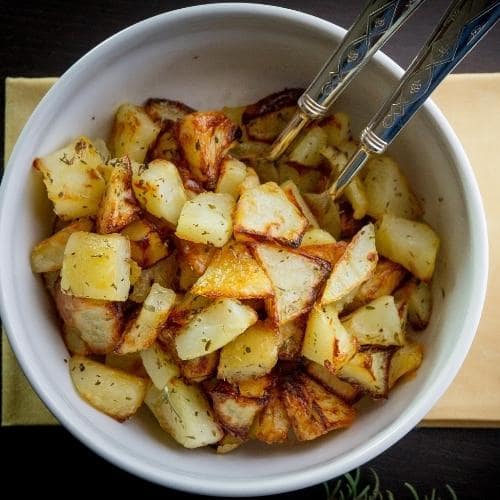

According to Food Standards Agency, Acrylamide is a natural chemical that forms when you bake, grill, roast, fry, or toast starchy food items at 120 Degree Celcius and above.
And since potatoes are rich in starch, avoid microwaving frozen potatoes, potato chips, and wedges as these contain acrylamide, a potent human carcinogen.
However, you can microwave potatoes with peels as they have a negligible amount of acrylamide but avoid overcooking to manage the concentration level.
Cooking leftover, pre-cooked, or baked potatoes at a consistently higher temperature in a microwave are a strict NO.
Bread
Reheating pre-baked bread in a microwave imparts the same result as pre-made potatoes.
Bread made from whole grains is rich in carbohydrates and sugar that react with the oven’s high temperature to form alarming levels of acrylamide.
When you microwave baked or stale toasted bread, it leads to a potent level of acrylamide due to low or no moisture in the bread, making it carcinogenic.
If you are frequently reheating baked bread, stop doing it now than ignorantly harming your health.
However, you can sprinkle some water before reheating and remove the crust to lower the acrylamide risk.
Breast Milk
While you may find it convenient to quickly microwave a bottle of breast milk to calm down your crying baby, doing it has some potential risks to your delicate ones.
Breast milk is not at all microwave safe as the high temperature might quickly heat the top layer of the milk to release steam while leaving the inner layer unevenly heated or sometimes superheated, destroying all the vital nutrients.
Feeding unevenly microwaved breast milk holds potential threats of scalding your baby’s mouth and throat.
So instead of microwaving, soak the milk bottle in lukewarm water to feed your baby safely.
Cooking Oil
Heating cooking oil in a microwave is a regular thing yet can be risky when superheated at a higher temperature.
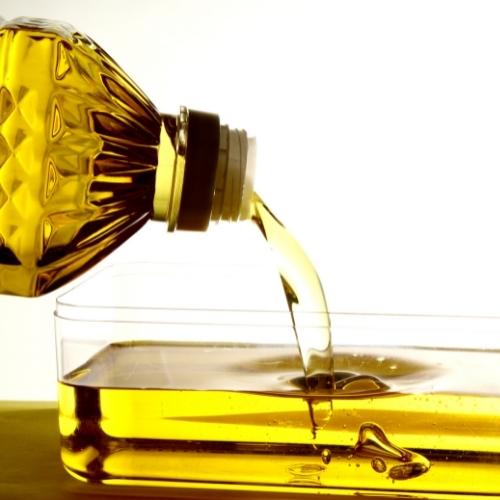

Oil derived from olive, canola, coconut, sesame, and mustard have different smoking points, and each formulation reacts differently when heated.
But when you heat oil in a microwave, the electromagnetic waves hit the container first to warm the oil and can even burn oil if heated excessively.
Smoky burnt oil has higher trans fats and bad cholesterol levels, which are harmful to your cardiac health.
But you can heat lesser quantities of cooking oil at a lower temperature only in a microwave-compatible container.
Green Leafy Vegetables
It may sound strange, but many cases of sparking or arcing have been reported by users while microwaving leafy greens like kale or spinach.
While you might be microwaving vegetables regularly without such issues, arcing happens mostly with dark green leafy vegetables.
Wondering why? The reason might shock you, but how can we forget that microwaves react with anything metallic and kale, spinach, or root
vegetables are rich in iron and essential minerals to cause arcing or sparks when put in a microwave.
So keep leafy greens out of your microwave oven when cooking.
Carrots, Green Beans & Green Peppers
Other surprising lists of vegetables that can cause arcing (spark) in your dependable kitchen gear are root vegetables like carrots because of the potent concentration of minerals directly sourced from the soil, green pepper, and green beans.
Besides minerals, even slight changes in the electric field also lead to arcing or sparking in a microwave.
When you microwave smaller pieces of carrots, the mineral molecules in each piece develop different charges to cause a spark.
In the case of green beans, their pointy edges enhance the electric effect by attracting and reflecting the waves faster on the cavity walls.
Fruits
The convenience of fast cooking in a microwave comes with the disadvantage of losing nutrients at a higher temperature in some fruits.
When microwaved at high heat, Fruits lose antioxidants, Vitamins, and phytochemicals and even dries out due to moisture loss.
So fruits are best to be eaten raw unless you need to soften them for making puree or sauce.
In that case, we suggest blanching the fruits in water in the microwave at a medium temperature and pre-set cook time for the perfect softened texture.
You can also dry certain fruits in a microwave to extend their shelf-life but keep grapes, apples, and peaches away as they may cause a spark.
Peas, Leeks & Squash
Peas, leeks, and squash are also some common foods you should never microwave as they lose phenolic, an essential plant compound that supports and promote your body’s immunity.
Microwaving such vegetables at a higher temperature leads to a tremendous change in the physical and chemical composition of leeks, squash, and peas, with hardly any health benefits left.
Studies have shown that overcooking these vegetables in the microwave or overboiling slashes down the phenolic level, flavanoid, and other essential plant compounds.
However, researchers have found that cooking these vegetables at a moderate temperature shows no deterioration in plant nutrients.
Hot Dog
Even from the best brands, microwaving refrigerated hot dogs has serious health risks if not done correctly.


Most hot dogs are pre-cooked, so when you are microwaving, you are reheating them.
So, make sure to microwave your hot dog for at least 75 seconds at a high temperature to destroy any lurking bacteria such as the Listeria monocytegenes that can make you seriously ill.
Also, don’t forget to unwrap the hot dog off the aluminum foil or plastic wrap to a microwave-safe plate before heating.
Ignorantly microwaving a hot dog in its original package may lead to a blunder.
Final Thoughts
As much as a microwave has upgraded your daily cooking, it is also a prime contributor to most domestic fire hazards.
And surprisingly, it’s not the mechanism but your improper way of microwaving food items that are not meant for your microwave oven.
We are sure you are surprised to see mentions you never thought were non-microwavable.
Hope our awareness guide on foods you should never microwave helped you grow as a better and more aware user, solving all your doubts.
Have you microwaved food that you actually should not? Share your blunder stories with us below.
Read Next

